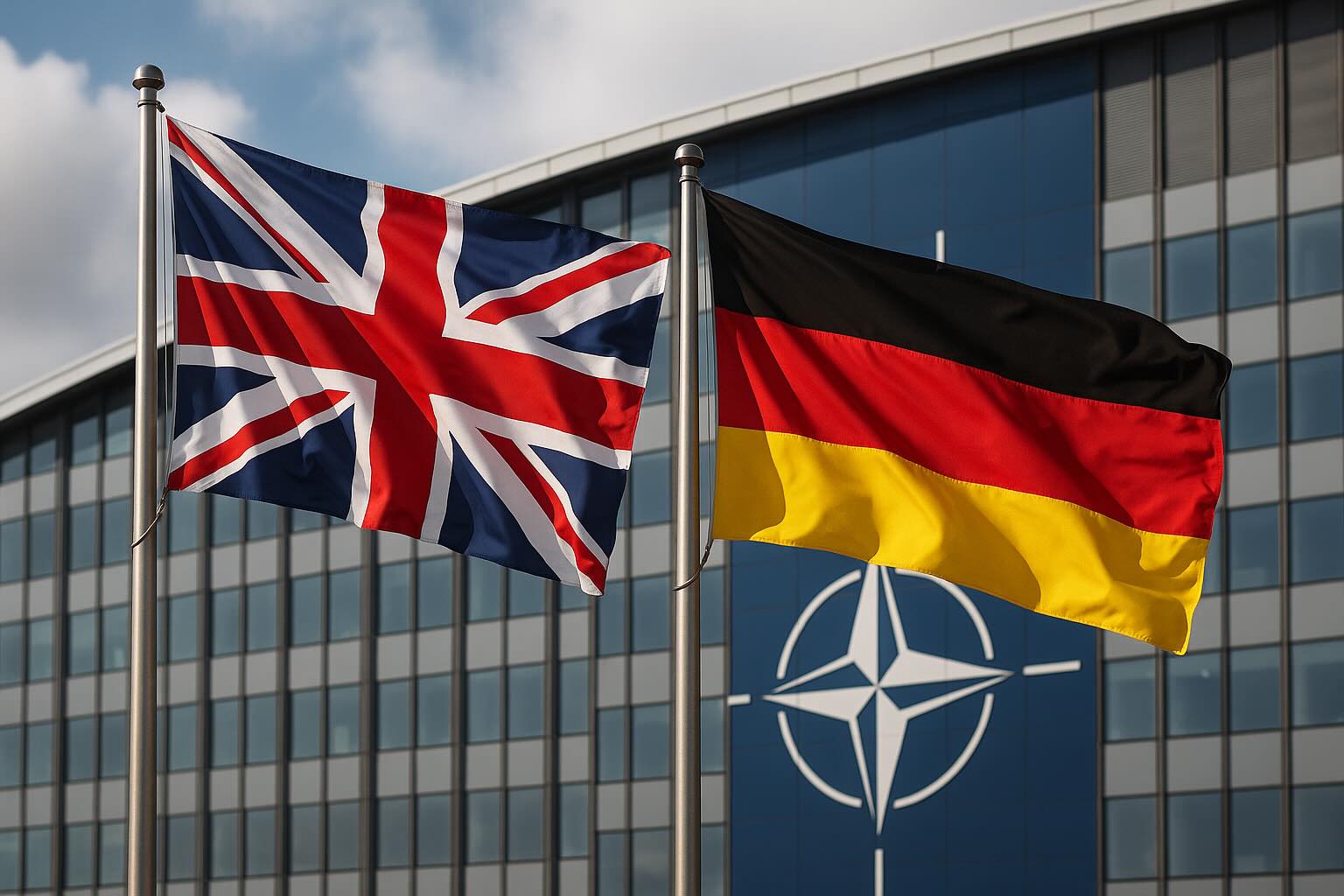


According to Politico the agreement marks a significant development in European security cooperation and follows nearly a year of negotiations launched in August 2024.
The treaty, described by officials as comprehensive in scope, builds upon a joint declaration made by Prime Minister Keir Starmer and former Chancellor Olaf Scholz in Berlin last summer. That statement of intent laid the groundwork for enhanced cooperation across a range of policy areas including defence, trade, migration, and innovation.
According to two senior British officials cited in the Politico report, the treaty text is now in its final form. The German government confirmed that cabinet approval is expected before the end of July. The UK government has not publicly commented on the report, and the German Defence Ministry stated it had no new information to release at this time.
At the centre of the agreement is a mutual assistance clause derived from the Trinity House Agreement, signed by the UK and German defence ministers in October 2024. The clause states that a strategic threat to one country will be regarded as a threat to the other. This represents a significant alignment of strategic posture between the two countries, both of which remain committed to NATO but are increasingly focused on enhancing bilateral and regional security cooperation.
The treaty reflects a broader shift in European defence thinking, prompted by continued instability in Ukraine and strategic uncertainty under the administration of US President Donald Trump. With both Berlin and London among Kyiv’s leading supporters and the two largest European defence spenders within NATO, the move signals a growing willingness to assume a larger share of the continent’s security burden.
The upcoming accord also coincides with structural changes in both countries’ defence policies. Germany has recently published its National Security and Defence Industry Strategy, while the UK is preparing to release an updated Defence Industrial Strategy. These frameworks are expected to shape future collaboration, particularly on capability development and procurement, including ongoing joint work on ‘deep precision strike’ technologies.
According to a recent policy brief from the Royal United Services Institute (RUSI), the treaty is also expected to strengthen governance structures and formalise cooperation mechanisms, ensuring strategic coherence across multiple domains. The brief, published in May 2025, cautioned against diluting the treaty’s impact by overextending its remit, but acknowledged the importance of embedding mutual political commitment.
One of the practical outcomes of the earlier Trinity House Agreement has been the embedding of a German defence official in the UK’s Strategic Defence Review team, and the basing of German maritime patrol aircraft at RAF Lossiemouth. Such projects are viewed as models for future joint operational planning and interoperability.
Although the treaty is not an EU instrument, its implications extend beyond the bilateral context. The UK has expressed interest in aligning with certain European defence initiatives, including potential access to the EU’s €150 billion rearmament fund. Germany, as a key EU member state, is likely to play a role in facilitating that engagement. A wider UK–EU defence agreement may also be discussed at the UK–EU summit later this year.
Beyond defence, the agreement includes commitments to cooperation on irregular migration, economic growth, transport infrastructure, and scientific exchange. However, analysts warn that political tensions over migration—particularly with the rise of anti-immigration parties in both countries—could present challenges to wider cooperation if not carefully managed.
A bilateral Joint Action Plan on Irregular Migration was agreed in December 2024, focusing on curbing small boat crossings and targeting criminal networks involved in human smuggling. Germany is expected to tighten domestic legislation on the procurement of boats used in such crossings, a key element of the plan.
In economic terms, Germany remains the UK’s second-largest trading partner, accounting for roughly 8.5% of UK trade. The treaty is expected to support mutual efforts to stimulate growth amid economic pressures and wider global instability, including rising trade tensions between the US and China.
The forthcoming signing of the treaty is expected to formalise and consolidate a new phase in UK–German relations. The agreement will be legally binding and is viewed by both sides as a key pillar in their respective strategic realignments following Brexit and amid a rapidly shifting international security environment.
The value of the treaty, however, will depend not only on its content, but on continued political will. As the RUSI brief notes, “the Treaty itself will not deliver the value required. Rather, the mutual political buy-in to the relationship, along with the shared challenges that the UK and Germany will face in the future, will.”
Russian Lasers on RAF Pilots Should Spark Fury — Not Another Meek Statement from Healey